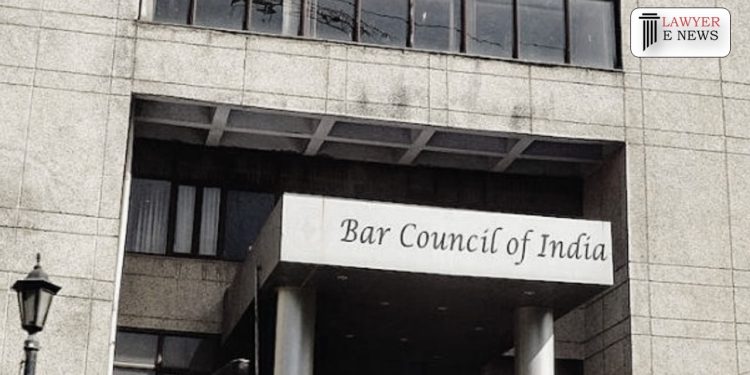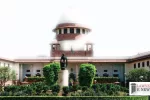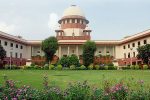Supreme Court Holds Unrecognized Law College Graduates Ineligible for Enrollment as Advocates

Date: June 9, 2023
In a significant ruling, the Supreme Court of India held that graduates from unapproved law colleges are ineligible for enrollment as advocates. The judgment was delivered by Justice Sanjay Kumar and Justice Vikram Nath, who stated that the Bar Council of India (BCI) has the authority to prescribe enrollment norms.
The case, titled Bar Council of India vs. Rabi Sahu & Anr., arose from an appeal filed by the BCI against an order of the Orissa High Court directing the enrollment of a writ petitioner as an advocate. The Supreme Court had stayed the operation of the high court order during the appeal process.
Justice Sanjay Kumar, while delivering the judgment, observed, “The rule framed by BCI requiring a candidate for enrollment as an Advocate to have completed his law course from a college recognized/approved by BCI cannot be said to be invalid.” The court emphasized that the BCI’s role in the enrollment process cannot be undermined, contrary to the previous judgment in V. Sudeer vs. Bar Council of India.
The writ petitioner had obtained a law degree from Vivekananda Law College, Angul, which was not recognized or approved by the BCI. The BCI had previously issued directives to the college, explicitly stating that students admitted there would not be eligible for enrollment as advocates. Consequently, the Orissa State Bar Council rejected the writ petitioner’s application for enrollment.
The Division Bench of the Orissa High Court had allowed the writ petition, relying on the now-invalidated judgment in V. Sudeer vs. Bar Council of India. However, a recent Constitution Bench judgment in Bar Council of India vs. Bonnie Foi Law College & Ors. clarified that the BCI has the power to determine the norms for enrollment.
In its ruling, the Supreme Court emphasized, “We have no hesitation in holding that the Division Bench was not justified in directing the enrollment of respondent No. 1 as an Advocate, despite the fact that he secured his law degree from a college which was not recognized or approved by BCI.” The appeal was allowed, setting aside the order of the Orissa High Court.
This judgment highlights the importance of obtaining a law degree from a BCI-recognized or approved college for individuals aspiring to practice as advocates. It reinforces the role of the BCI in determining the eligibility criteria for enrollment, ensuring the maintenance of standards within the legal profession.
Date of Decision: June 9, 2023
BAR COUNCIL OF INDIA vs RABI SAHU & ANR.






